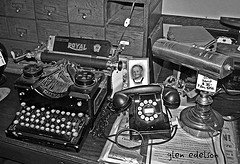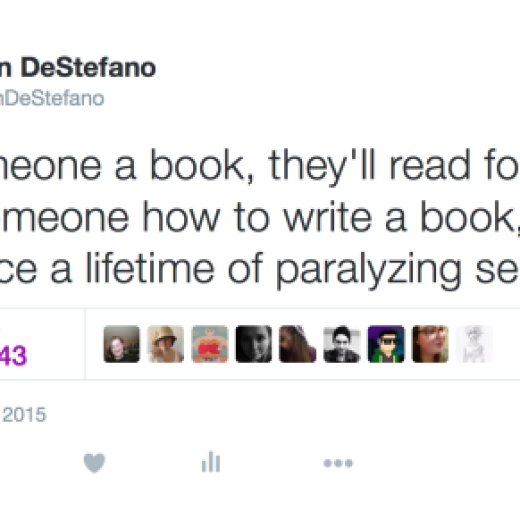How Do You See Yourself As A Writer? By Margaret A. Nystrom
 Welcome back educator, writer, and artist Margaret Aslanis-Nystrom as she shares with us tips on how you see yourself as a writer. Enjoy!
Welcome back educator, writer, and artist Margaret Aslanis-Nystrom as she shares with us tips on how you see yourself as a writer. Enjoy!
***
What we call ourselves and our profession is often the psychological difference between accomplishing our goals and dreaming about them. People often call themselves ‘aspiring writers’, but I think that needs to change and here’s why.
When your car breaks down, you don’t aspire to fix it. You don’t dream about it. You either get it fixed, or you don’t. Your mechanic doesn’t aspire to repair it. The mechanic keeps working until it is fixed or tells you why it can’t. Artists don’t call themselves ‘aspiring artists’. They just paint, draw, sculpt, etc. Doctors don’t call themselves ‘aspiring specialists’. Instead, they train for years. There are no ‘aspiring teachers’. They practice how to teach, and then, teach.
Now don’t get me wrong. Dreaming, planning, and aspiring are good things to do, just not good things to be. Being in a perpetual permanent state of aspiring, or dreaming, or wishing, is not an active doing or completion of goals. Like being in a hamster’s cage, you never get off to the real work of writing. It’s OK, if you don’t want to accomplish anything more than dreams. Dreaming is fun. It has a place in the beginning, while setting goals. However, I often see writers who keep taking classes, but don’t go further or hide a manuscript in a desk drawer. ‘Aspiring writers’ stay stuck at the beginning of the writing process. Aspiring or dreaming by itself, doesn’t get a novel published or even completed. For most writers, the goal is to do the work well enough, in order to be a published author.
Writers seem to be the only professionals where we aspire to be who we want to be. So why do many writers stay in a perpetual mode of dreaming and never become an actual practicing writer who eventually publishes? I think part of it is two-fold: our fear of failure (or making mistakes), and our embarrassment (or fear) of what we have attempted to write so far, because of our inexperience, lack of skill, or confidence. So we tell ourselves, after all, we are not really writers, we are aspiring, which gets you off the hook. Don’t blame me for poor writing, I am only aspiring to write. I’m not really serious about writing, I’m just dreaming about it, just dabbling in it, pretending, etc. It gives a person an excuse to hide, avoid, or procrastinate from the real work of writing which exposes our work for all to see. It keeps us from facing our biggest fear about writing, that we may not be good enough, and worse yet, readers will find us out.
If you still call yourself an ‘aspiring writer’ ask yourself the following:
- Do you have a written business plan with specific and realistic long term and short term goals?
- Do you write every day, (even for five minutes) to help develop your writer voice, enhance skills, and develop a routine?
- Do you read in your genre and try new genres? (Like Stephen King says, “If you don’t have time to read, you don’t have time to write.”)
- Do you update skills with classes, workshops, conventions, etc.?
- Do you query on a regular basis, or hide your work?
- Do you network to learn more, join critique groups, or writing associations, etc.,?
- Do you have a writing team (mentor, editor, publisher, cover designer, etc.)?
- Do you have an author platform that creates a base of potential readers/buyers?
If you said yes to all or most of these, then you are serious about your writing. If not, then time to get busy, or be honest with yourself. Is this really what you want? Is this your career (or a hobby)? If it is, be serious with how you see and call yourself.
Instead of ‘aspiring writer’, I think a more appropriate description is ‘writer in training’, ‘student writer’, ‘author apprentice’, or my personal preference, ‘unpublished writer’. Athletes don’t aspire to go to the Olympics, they train their way there. You are training yourself into being an author. Psychologically, we see ourselves in the manner we call ourselves. To call oneself an ‘unpublished writer’ sets a momentum to practice until we publish. It keeps us honest and responsible. There is no shame in it. It tells us and others we are paying our dues with action. An unpublished writer practices and learns until they complete that first piece that makes them not only an active writer, but a new author.
***
 Margaret A. Nystrom, M.A.T., Q.M.H.P.
Margaret A. Nystrom, M.A.T., Q.M.H.P.
Feeling stuck or need help with procrastination or writer’s block? Margaret’s award-winning blog, http://afterwriterdreams.com/, is a motivational content blog for writers. She is an author, educator, artist, guest radio speaker, and monthly guest blogger/columnist in N.C. She has taught children and adults for 40 years and created over 25 blogs. She also writes articles and psychological thrillers. Read her new ebook:The Writer’s Control Guide for Procrastination and Writer’s Block: 101 Management Strategies.







Inspiring thoughts to keep in mind. I answered “yes” to 90% of those questions, Margaret. Thanks for the words of encouragement.